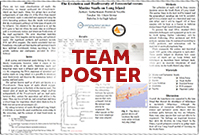
Team Info
- Program:
- Urban Barcode Project
- Year:
- 2023-24
- Research Topic:
- Biodiversity & trade
- Taxonomic Group Studied:
- Multiple - enter below
Project:
Biodiversity of Soil's Microorganisms in an Urban Area versus Sub-Urban Area
- Students:
- Amelia Bhi m, Mariam Elkhateeb, Alina Astudillo, Ana Rocafuerte
- School:
- High School for Health Professions and Human Services, Manhattan
- Mentors:
- Rocheli Apilan
Abstract:
Urbanization, the rapid expansion of cities and human infrastructure, has become a dominant global phenomenon, altering natural landscapes and ecosystems. Urban environments are characterized by complex anthropogenic pressures, including habitat destruction, pollution, and habitat fragmentation. On the other hand, non-urbanized regions are ones that have lower population density, are devoted to more natural agricultural processes, and have fewer infrastructure/ recreational amenities. These circumstances in which environments stem from are primitive factors that have the potential to exert profound effects on local and regional biodiversity. Biodiversity refers to the volume of living species on Earth and how different species interact with each other and the physical world around them. Biodiversity in turn is affected when urbanization promotes the dwellings of buildings and practices that destroy, fragment, pollute, heat up and introduce invasive species into habitats with species al

